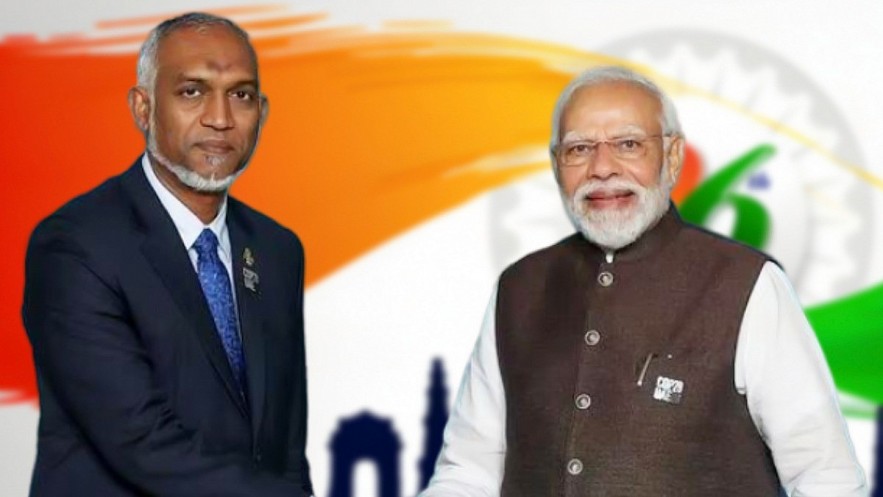 |
The recent swearing-in ceremony of Indian Prime Minister Narendra Modi was graced by an esteemed guest, President Dr. Mohamed Muizzu of the Maldives. President Muizzu’s presence at this significant event added an international dimension and highlighted the strong ties between India and the Maldives.
India has proven to be a true friend to the Maldives, offering much-needed support during these difficult times. This was evident in the recent visit by Foreign Minister Moosa Zameer to India, which resulted in a crucial financial lifeline: a roll-over of a $50 million Treasury Bill through the State Bank of India for an additional year, starting from May 13, 2024. India’s timely assistance showcases their unwavering backing for the Maldives as it navigates through unprecedented economic troubles.
Moreover, India demonstrated its respect for the Maldives’ democratic sovereignty by facilitating the transition from military to civilian leadership for humanitarian operations within the country. India’s offer to train the Maldivian National Defense Force in operating Dornier aircraft is a testament to the depth and strength of the bilateral relationship. As Foreign Minister Zameer eloquently stated, the historical bonds between India and the Maldives continue to thrive, emphasizing India’s enduring dedication to its island neighbor.
However, President Muizzu’s appeals to China for debt restructuring have faced obstacles. Despite the Maldives’ mounting economic concerns, China has been reluctant to restructure its debt, citing potential issues with future project loans. This stance reveals China’s strategic interests taking precedence over the financial well-being of its partner countries, raising alarms about the Maldives’ economic autonomy.
The Maldives’ economic woes are largely attributed to its significant Chinese debt, which makes up a substantial portion of its external debt. President Muizzu’s administration has embarked on a risky path by awarding multiple projects to Chinese companies with the promise of zero costs. Unfortunately, the outcome has been less than reassuring, as the Maldives has had to offer long-term land leases to China, sparking concerns about a potential loss of sovereignty.
The World Bank has issued a stark warning about the Maldives’ risk of public debt distress, highlighting the severity of the situation. With overwhelming debt levels and depleting foreign reserves, the country faces a herculean task in maintaining financial stability.
As the Maldives grapples with these economic challenges, the decisions made by President Muizzu’s government will have far-reaching consequences. The choices ahead will shape the country’s economic future, determining whether it overcomes this crisis with its sovereignty intact or falls prey to the dangers of debt-trap diplomacy.
In light of these circumstances, it is crucial for the Maldivian government to reevaluate its economic strategies, prioritize fiscal responsibility, and forge strategic alliances that guarantee the nation’s long-term prosperity. Diversifying economic partnerships beyond China and fortifying ties with trusted allies like India could be a path towards economic resilience and sovereignty preservation for the Maldives.
President Muizzu’s attendance at Prime Minister Modi’s swearing-in ceremony symbolizes the enduring connection between the two countries, founded on shared values and reciprocal support. As the Maldives navigates these turbulent economic times, India’s steadfast friendship shines as a beacon of hope, offering assistance and solidarity when it is needed most.
Vietnam’s two big cities lead region in dynamic growth: JLL
HCM City and Hanoi continue to lead the momentum in Southeast Asia, ranking third and seventh among the most dynamic cities in the world, according to the City Momentum Index recently issued by property consultant Jones Lang LaSalle.








